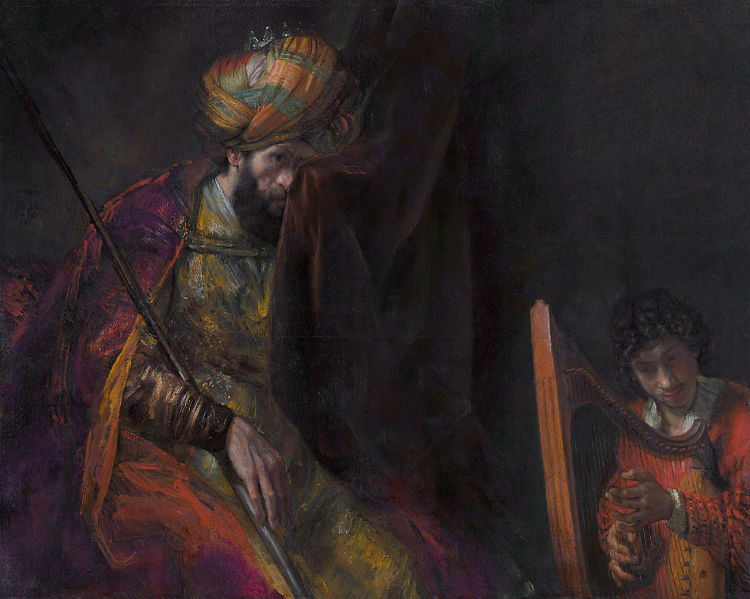Saul was the first king of Israel and he reigned from 1020-1000 B.C. which marked a transition from a tribal society to statehood. He was a man of valor who brought the virtues of modesty and generosity to his office. Let us know more about Saul and the major events that happened in his life.
 Name: Saul
Name: Saul
Alternate Name: King of Israel
Family: Kish (Father), Ahinoam (Mother), Jonathan, Isvhi, Malchi-Shua, Esbaal, Merab, Michal (Children)
Personality:
- Modest (initially)
- Generous (initially)
- Fair (initially)
- Wise (initially)
- Humble (initially)
- Charismatic
- Good-looking
- Proud
- Vengeful
- Stubborn
- Depressive
- Moody
Major Events in Saul’s Life
Saul is the youngest son of Kish of the tribe of Benjamin and he was a modest shepherd boy and a resident of Gibeah. But after a chance of meeting, prophet Samuel secretly chose and anointed him king of Israel.
It was a period of national humiliation that time because the Philistines had defeated the Israelites at Shiloh and they captured the Ark of the Covenant which symbolized the presence of God in their midst. Due to this calamity, the Israelites were convinced that they must either strive for national unity with a king as their leader or face complete and permanent subjugation.
Saul had successfully freed Israel from its enemies and had extended its boundaries. He had successfully fought against Ammonites, Arameans, Amalekites, Philistines, Edomites, and Moabites. He had also drawn the tribes of Israel into a closer unity through his actions.
However, Saul had two conflicts with Samuel. First was when Saul offered a burnt offering to God despite being told not to. This occurred when fighting with the Philistines. Samuel rebuked him for this. He said that Saul and his lineage would have ruled Israel forever, and now God had taken that away from him and his family.
The second conflict came when the Israelites fought the Amalekites. They were the sworn enemies of Israel and were cursed by God. When engaged in battle, no slaves nor spoils of war were to be taken, which is exactly what Saul did. He took their king, Agag, captive and kept the best of their treasure for himself. Samuel became angry at this and declared that God had withdrawn his blessing for Saul to remain king. While Saul kept his political office, he no longer possessed God’s blessing or guidance upon the throne.
With that, Saul had fell into a state of melancholia which developed into an emotional disorder. Because of his depression and his moody, suspicious temperament, he attached David who had been brought into his home to soothe him by playing music. He was jealous of David that’s why he persecuted him, attacked him, and sent him on perilous expeditions and finally made him into an outlaw.
After David was driven away, the Philistines renewed attacking Israel. However, it went poorly without David’s support and without God’s power. Saul felt that depressed and felt that God had deserted him that’s why he consulted a witch of Endor and seeked to recall the spirit of the dead Samuel. But was rebuked and was instead told of his impending defeat.
During a battle against the Philistines, Saul fought valiantly but vainly. With this, his forces routed and his three sons were slain including Jonathan. Saul had died by his own hand.
Saul was a man who started very well but ended badly. There are a lot of lessons we can learn for his life. One is to obey the Lord and seek to do His will. It’s because from the very start of his reign, he had the perfect opportunity to be the benchmark by which all the future kings could be measured and all he had to do was seek the Lord wholeheartedly and obey God’s commandments. However, he had chosen a different path and strayed away from God.
Another lesson we can learn from Saul’s life is to not misuse the power given to us. We should always remember that no matter how powerful we may become, God is the one who is really in control and He alone rules over all.

